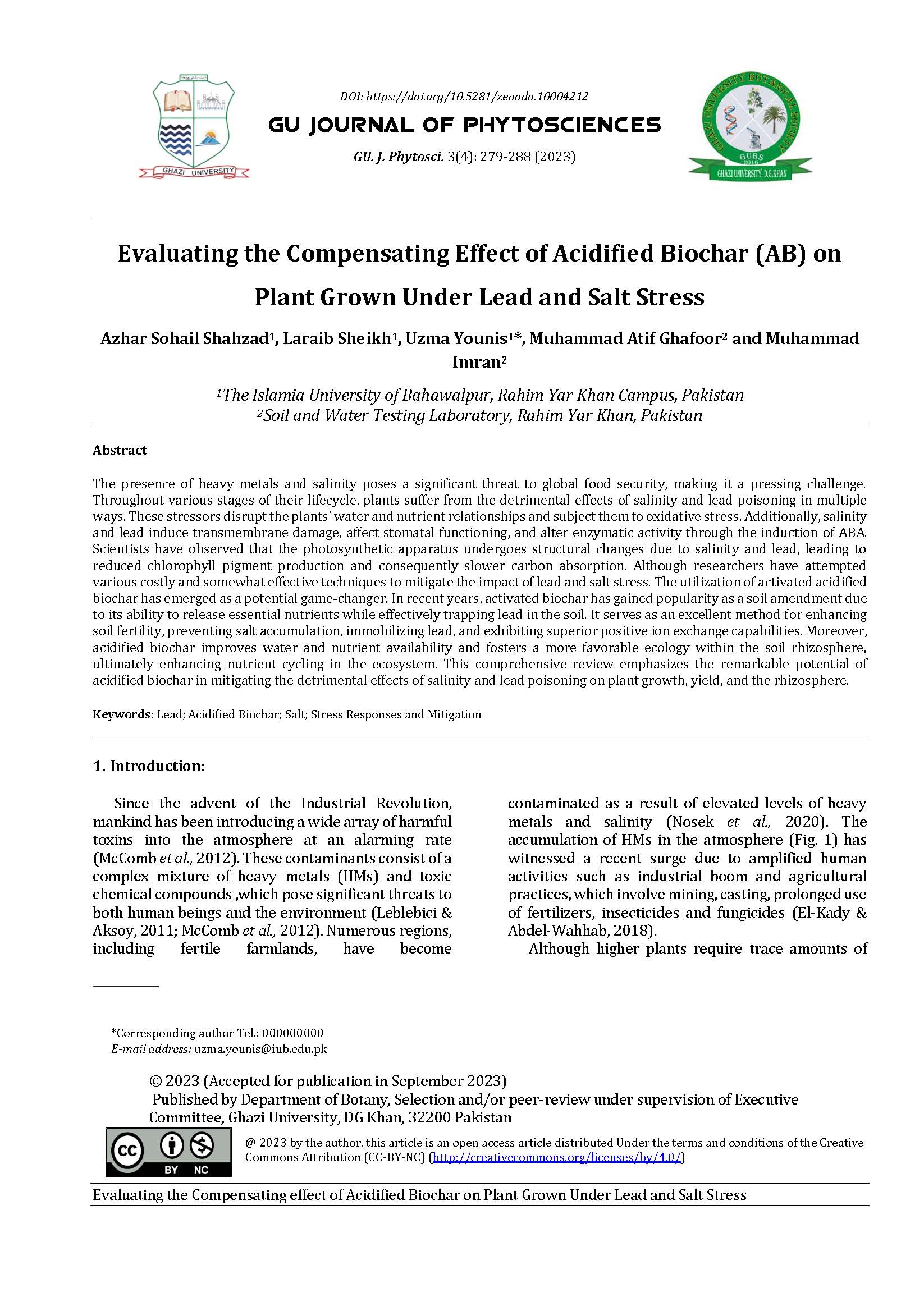Evaluating the Compensating Effect of Acidified Biochar (AB) on Plant Grown Under Lead and Salt Stress
Keywords:
Lead, Acidified Biochar, Salt, Stress response, MitigationAbstract
The presence of heavy metals and salinity poses a significant threat to global food security, making it a pressing challenge. Throughout various stages of their lifecycle, plants suffer from the detrimental effects of salinity and lead poisoning in multiple ways. These stressors disrupt the plants' water and nutrient relationships and subject them to oxidative stress. Additionally, salinity and lead induce transmembrane damage, affect stomatal functioning, and alter enzymatic activity through the induction of ABA. Scientists have observed that the photosynthetic apparatus undergoes structural changes due to salinity and lead, leading to reduced chlorophyll pigment production and consequently slower carbon absorption. Although researchers have attempted various costly and somewhat effective techniques to mitigate the impact of lead and salt stress. The utilization of activated acidified biochar has emerged as a potential game-changer. In recent years, activated biochar has gained popularity as a soil amendment due to its ability to release essential nutrients while effectively trapping lead in the soil. It serves as an excellent method for enhancing soil fertility, preventing salt accumulation, immobilizing lead, and exhibiting superior positive ion exchange capabilities. Moreover, acidified biochar improves water and nutrient availability and fosters a more favorable ecology within the soil rhizosphere, ultimately enhancing nutrient cycling in the ecosystem. This comprehensive review emphasizes the remarkable potential of acidified biochar in mitigating the detrimental effects of salinity and lead poisoning on plant growth, yield, and the rhizosphere.

Downloads
Published
How to Cite
Issue
Section
License
Copyright (c) 2023 The Authors

This work is licensed under a Creative Commons Attribution-NonCommercial 4.0 International License.
All works published by the GU Journal of Phytosciences are freely available to copy, distribute, transmit, and adapt the work provided the original work and source are appropriately cited under a CC BY-NC 4.0 International License. The CC BY-NC licence allows for maximum re-use of open-access materials, and the author has full copyright over their publication. Under this license, users are free to share (copy, distribute, and transmit) and adapt for any purpose, but not for any commercial use (read full legal code).
Under Creative Commons, authors retain copyright in their articles.



